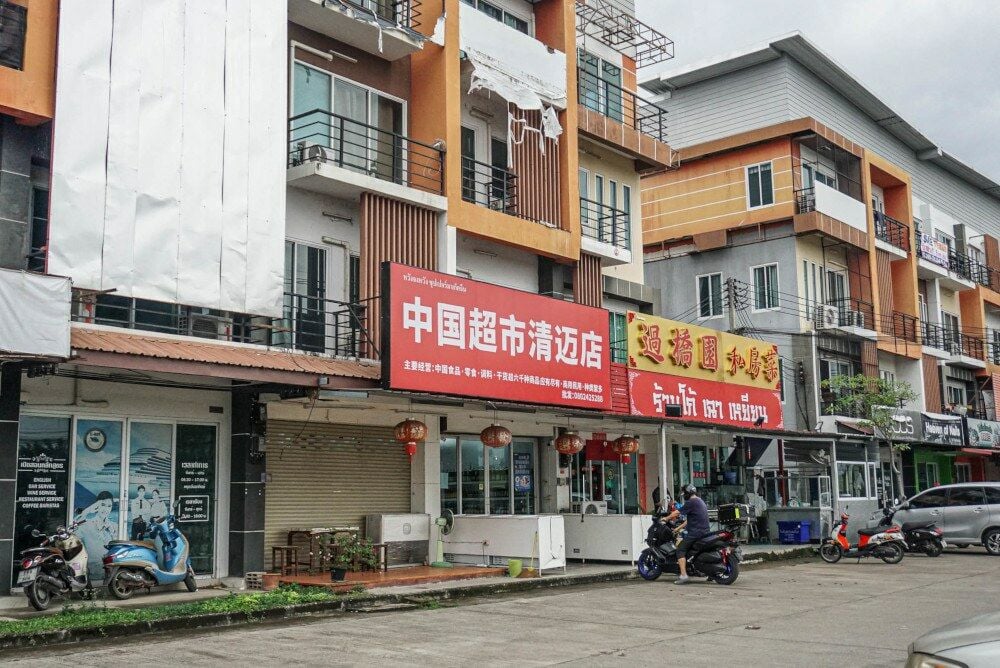Chiang Mai swept up: Chinese investors leave locals concerned

Residents in Chiang Mai have raised concerns about the future after Chinese investors continue to sweep up real estate in the largest city of northern Thailand.
Locals are speaking out against what they see as an increasing domination by Chinese investors swooping in to purchase property en masse, fundamentally altering neighbourhoods and threatening the city’s cultural identity and economic autonomy.
A stroll through Hang Dong, a district in the city, paints a vivid picture of this change. Storefronts now bear a tapestry of Chinese characters, a testament to the financial influx that’s permeating the area. But it’s not just Hang Dong feeling the impact. Across Chiang Mai, Chinese investment is reshaping the urban fabric, leading many locals to fear for the region’s future.
“If Chinese investors take over the rental market and start charging higher rates only affordable to other Chinese tenants, residents renting on a budget will struggle,” said Naret Puntasrivichai, a seasoned player in Hang Dong’s apartment rental scene. His concerns are not without basis.
Over the past decade, real estate data shows that more than 1,000 properties have been snapped up by Chinese buyers, with investments tallying a hefty 3 to 5 billion baht.
Hang Dong, along with districts San Kamphaeng and San Sai, has witnessed price tags starting at 3 million baht per unit, numbers that local Thai developers simply can’t compete with. A notable Chinese-backed initiative recently splashed out 350 million baht on a mere four acres—an amount that dwarfs typical local investments, reported Benar News.

Chiang Mai is home to roughly 1.62 million Thai nationals but Chinese residents number around 7,190, supplemented by thousands more who come on tourist visas, ostensibly conducting business or semi-permanently residing despite restrictions. Last year alone, 200,000 Chinese nationals visited, marking them as Chiang Mai’s largest tourist demographic.
Danaitun Pongpatcharatrontep, leading the China Intelligence Centre at Chiang Mai University, remarked on the foreign investor invasion.
“Chinese investors are tuning Chiang Mai from a leisurely tourist hotspot into a bustling second home.”
With plans spanning tourism, second-home construction, and schools for their children, their presence is palpable.
“They’re not only coming via Chinese enterprises but through joint ventures with Thai partners.”
This influx has also seen housing prices in China reach monumental highs, making Chiang Mai’s more modest figures ever more appealing for middle-class Chinese buyers searching for affordable paradise.
Chinese practices
But as the Chinese investment wave rises, local agents like 38 year old Hathairat Polnirun, find themselves navigating turbulent waters.
“The Chinese real estate model is a world apart from ours. Here, sales commissions max out at 5%, whereas Chinese practices see buyers pony up 10% or more—pricing us out of transactions with Chinese clients.”
Compounding these challenges, Chinese enterprises are forming real estate outfits, camouflaged under Thai branding to skirt restrictions. Hathairat speculates that, should larger Chinese firms with deep pockets flood the market, smaller Thai and Chinese agencies could be driven out of business.
Local sentiment underscores these concerns. A survey by think-tank The Glocal found that a staggering 60% of residents believe Chinese investments are upending local businesses, with real estate the primary sector in peril.
Cultural tensions simmer beneath the surface in areas with heavy Chinese occupancy. Complaints range from disregard for local customs to louder-than-acceptable behaviours and other cultural frictions that jar with Chiang Mai’s traditionally polite society.
As anxieties rise, legal experts, like Chiang Mai University’s Tossapon Tassanapan, advocate for stricter oversight.
“We need a full audit of business practices, from entry permits to financial records. While laws don’t specifically target Chinese investments, they mustn’t fall into grey areas, nor should officials turn a blind eye to potential money laundering or malpractice.”
The brewing crisis in Chiang Mai highlights a need for tighter regulation, vigilant enforcement, and a balanced approach to foreign investment that safeguards the city’s heritage while fostering economic growth.
Can Chiang Mai, beloved for its cultural richness and serene landscapes, survive this wave of change, or is the city destined for a new identity? Only time will reveal whether action is taken to ensure that locals don’t find themselves priced out or culturally sidelined.
Latest Thailand News
Follow The Thaiger on Google News:


























